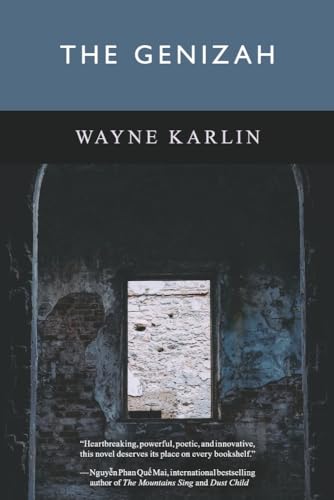The Genizah
In 1941, the extended family of Karlin’s mother were murdered by the Nazis in her hometown of Kolno, Poland. In modern day America, Karlin and two close friends discover a hiding place in the wall of their New York City apartment: it is a genizah, or a “tomb for holy books.” Between these two realities, Karlin steps back to ponder “what if?” and in the process pens a powerful and deeply unsettling story of what would have happened if his grandmother, mother, and uncle had not immigrated to America but rather ended “as lines in a list of murders.”
Karlin dares to think the unthinkable and pulls the readers deep into a fever dream of poetry, nightmare, and bottomless despair. The Genizah does not make for light reading, but its truths are undeniable. Twenty-three members of Karlin’s extended family perished in Kolno. In telling their stories, as well as his created vision of alternate endings for his own parents, he follows the Jewish Passover tradition that admonishes Jews not to tell the story of slavery and liberation “as if it happened to those old Jews,” but rather as if it is happening to them now. Thus, Karlin imagines a history that ends differently, where his parents, grandmother, and uncle do not survive. In experimental, written-as-spoken prose, he conjures up a close-knit Jewish family navigating the anti-Semitism of their Polish neighbors while not believing cultured Germans would come to obliterate them wholesale.
The Genizah is not for the faint of heart—Karlin captures the evil of Jewish genocide in truly horrific displays, but also explains throughout how grief reminds people “of what needed to be suffered in order to be saved.”










